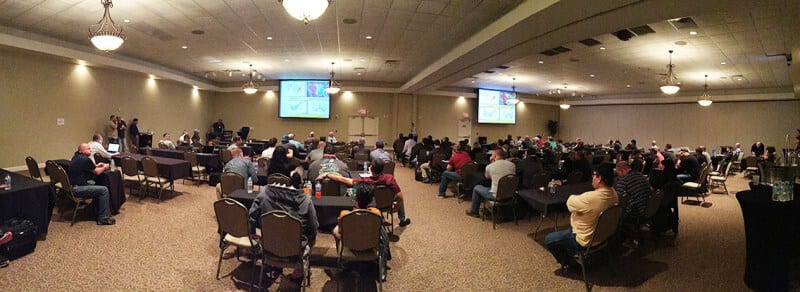 GeoStabilization recently celebrated two safety milestones: our Experience Modification Rate improved from an already industry-leading score of 0.65 to 0.62; and our Rockfall Remediation Technicians have now fully implemented both 2-rope safety training through the Society of Professional Rope Access Technicians (S.P.R.A.T.) and 1-rope safety training through the Professional Climbing Instructors of America (P.C.I.A.).
GeoStabilization recently celebrated two safety milestones: our Experience Modification Rate improved from an already industry-leading score of 0.65 to 0.62; and our Rockfall Remediation Technicians have now fully implemented both 2-rope safety training through the Society of Professional Rope Access Technicians (S.P.R.A.T.) and 1-rope safety training through the Professional Climbing Instructors of America (P.C.I.A.).
EMR is an important metric used by the insurance industry to evaluate relative risk of injury and to a company’s employees. The average for any given industry is 1.00. Companies whose employees are at less risk of injury score below 1.00, those that at higher risk score above 1.00. Scores below 0.75 are considered excellent, making GeoStabilization’s current 0.62 rating even more notable.
GeoStabilization’s impressive marks on safety are a result of a formal commitment by all of the members of the GeoStabilization family. In addition to maintaining a full-time, dedicated safety team, investing in daily toolbox talks and weekly, monthly, and quarterly training, GeoStabilization also brings all office staff, management, and superintendents together for a full week -every year- to focus on safety training. This February, 140 GeoStabilization employees from across the continent met in Daytona Beach, Florida, where every member of the family attended over 100 hours of intense, comprehensive training. The meeting includes team building activities, technical training from qualified experts, mandatory drug testing of all employees, and an opportunity for GeoStabilization employees to get reacquainted after being on the road responding to geohazard emergencies during the previous year.
“Our annual safety meeting is extremely important. It is our duty to get these guys in here and make sure that they know how to do their jobs correctly, and safely,” said Kim Ruckman-Wright, GeoStabilization’s Chief Administrative Officer and Head of Safety. “We are all a family and I want to make sure that we protect our own and -by extension- our clients. We work all over the continent and travel a lot. It’s important to get everyone together to maintain our company culture, and safety is a huge part of that.”
Specialized training for certain operations is also critical in GeoStabilization’s overall safety program. For the last 18 months, GeoStabilization’s RRTs have been training with SPRAT to master 2-rope systems for rockfall remediation operations that do not require extensive sideslope mobility (like drilling, or installing rock anchors) and with PCIA to master 1-rope systems for operations where sideslope mobility is critical (like rock scaling, where RRTs may need to avoid falling rocks from above). This month marked full implementation of the training plan, and we can now say that GeoStabilization’s RRTs have every required tool available in the commercial training marketplace to keep them safe in their work.